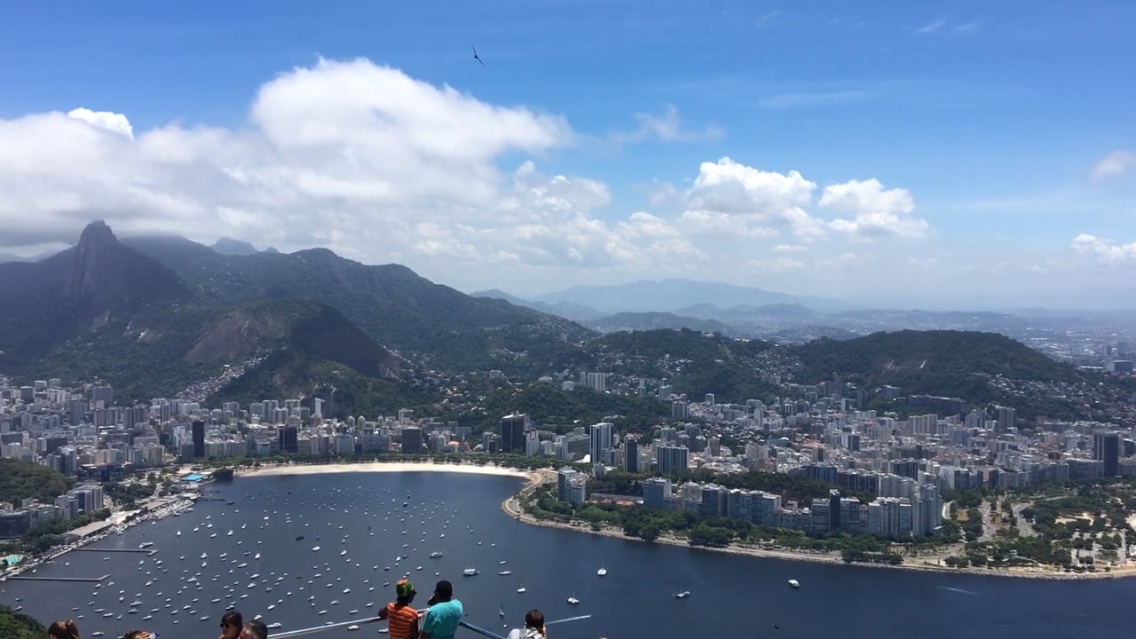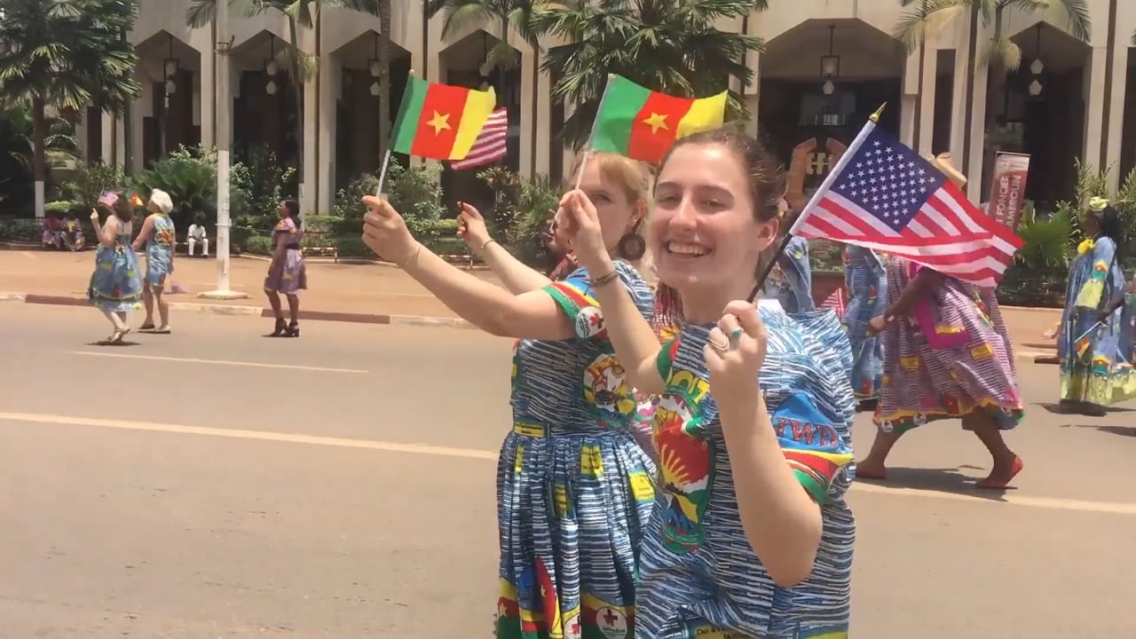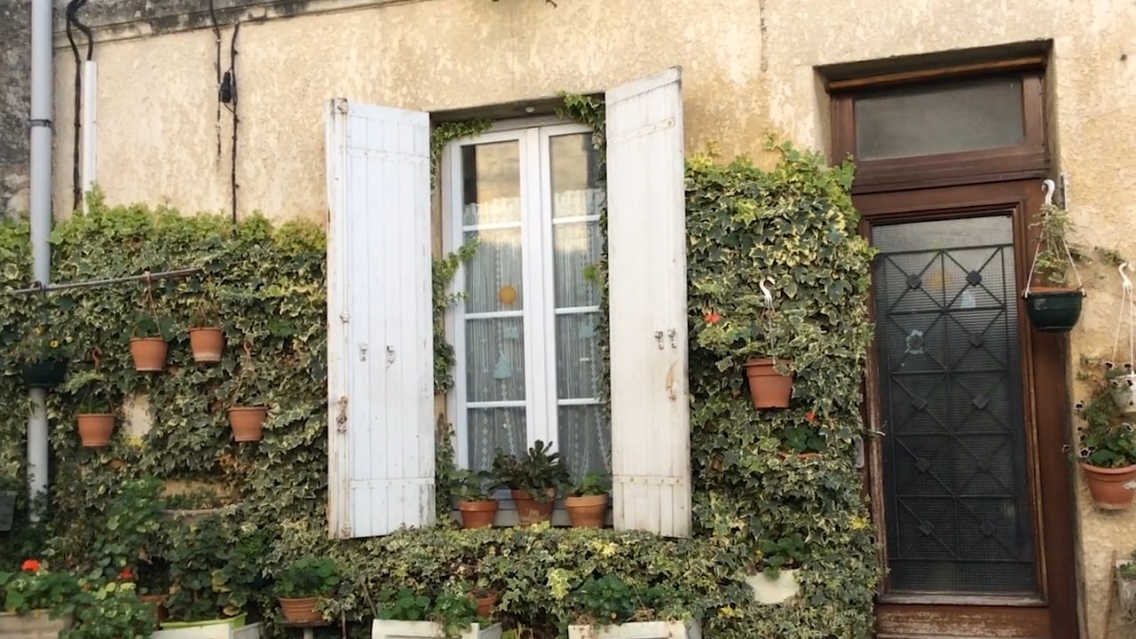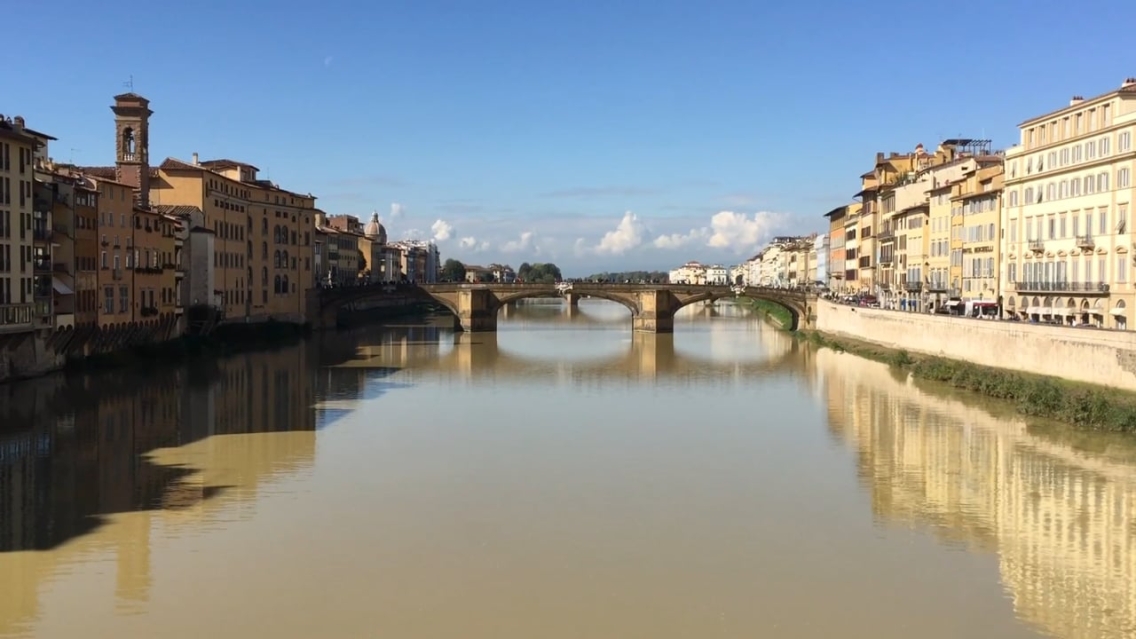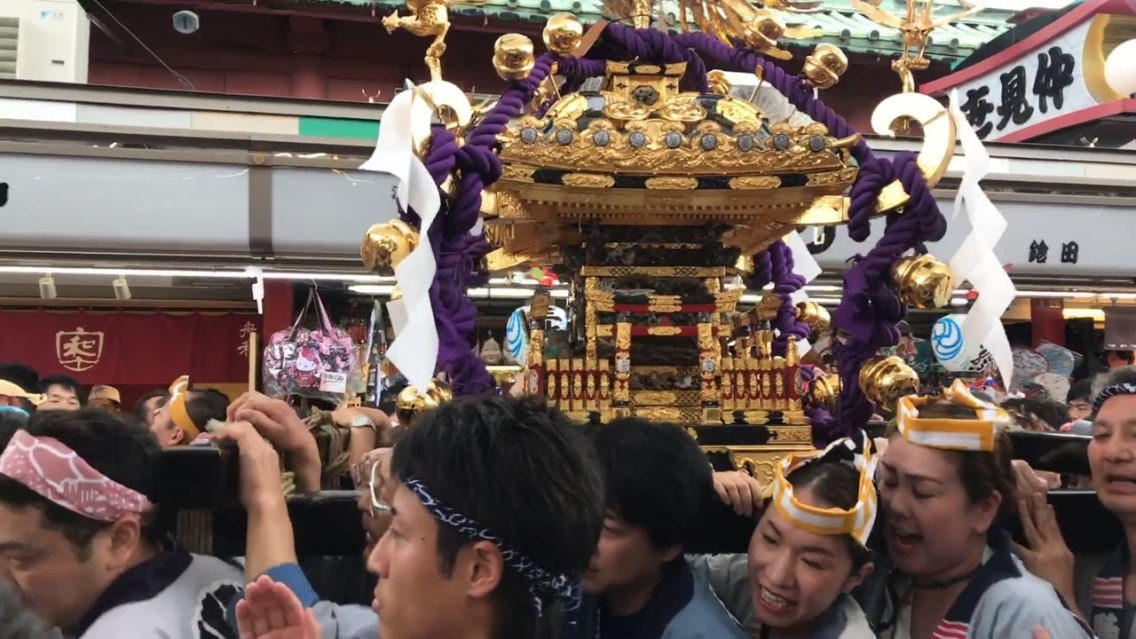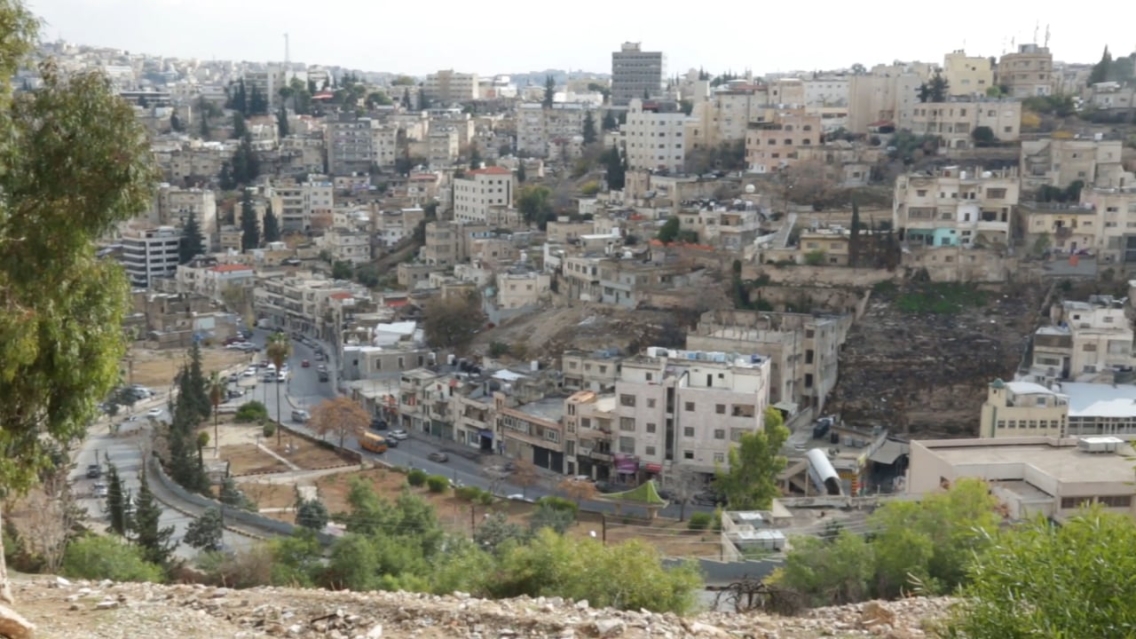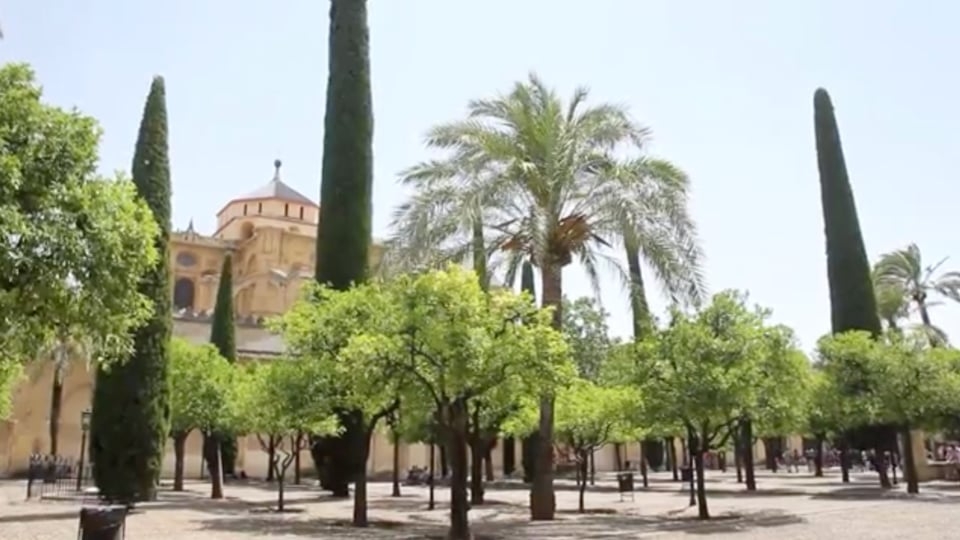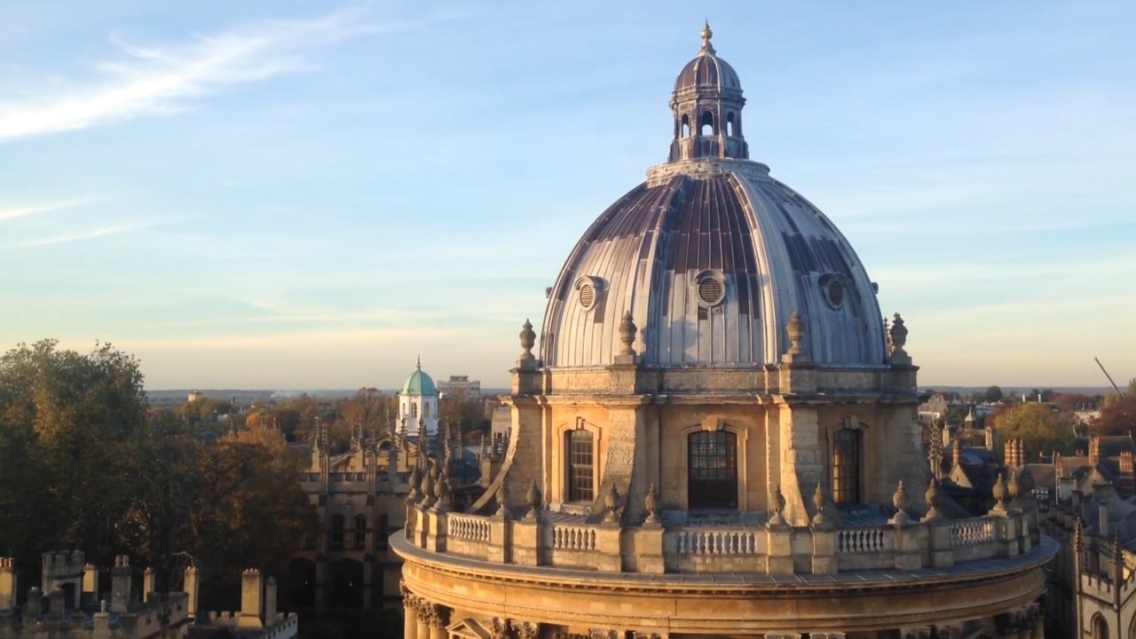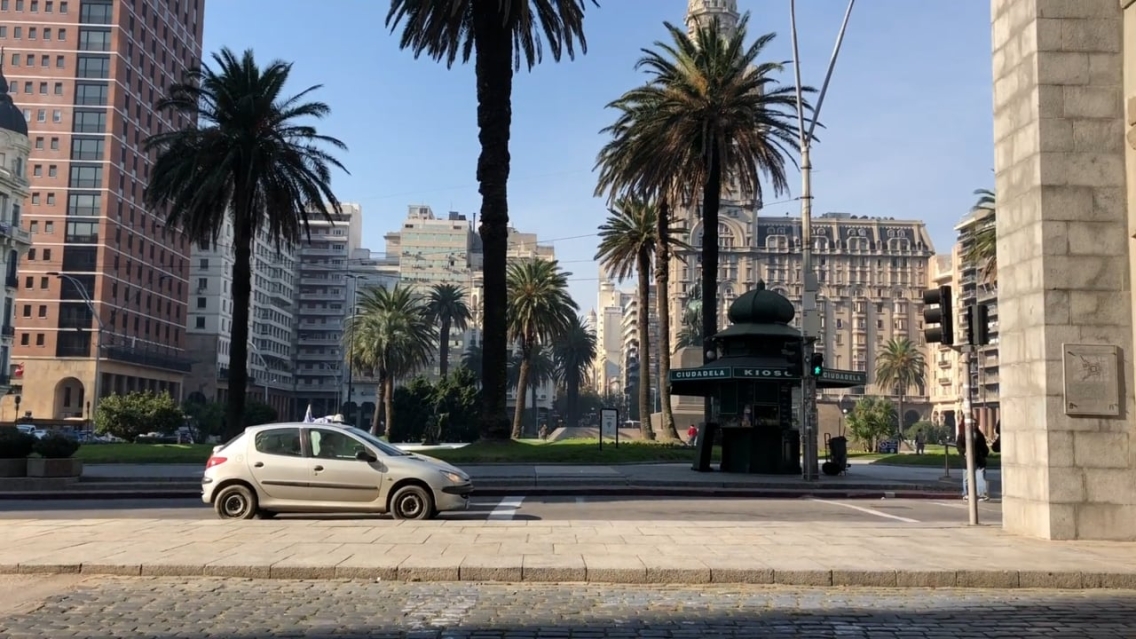Videos
Meet the Middlebury Schools Abroad
When I think about the experience abroad I kind of struggle to put it in words.
Every day I could wake up and choose a new adventure.
That rush of being on your own in a new place, that was the most exciting.
There were moments for sure in the first week even the first month, where I thought, what am I doing? I don’t really understand what’s going on. I’m not fluent in this language. But slowly, gradually, as you engage more with the culture, those fears, those worries start to fade away.
Language and culture is like two phases of one, one coin. So having language, it’s one part, but having culture, it’s the huge impact in these students.
By the interaction, day by day with local people, they start seeing things different ways of life from a different reference point.
It’s an incredible opportunity for our students to be taught about local issues by local experts.
I loved the idea that every day I was gonna learn something new. Seeing my growth in the language and seeing how happy the locals are, and then you start being happy and start wanting to speak it more. That helped ease the difficulty.
[Carlos Vélez] If you want to immerse yourself in a culture, learn that language from the people and with the people, Middlebury would be a perfect place for you.
In terms of practical advice, I’d say just say yes to things. Introduce yourself to new people. The time goes by fast, so just soak it in.
You have to be able to allow yourself to be open and vulnerable ‘cause it’s scary, but it’s needed.
And I would say don’t hold back because it’s an experience you really only get to do once in your life. It’s a chance to live with no regrets.
Below find a series of site-specific videos made with interviews and, in most cases, footage by Middlebury Schools Abroad participants. You can find additional videos on our YouTube channel.
Brazil: Study Abroad in Niterói
My name is Marykate Melanson, and I studied abroad in Niterói in Rio de Janeiro. Rio is huge, it’s enormous, there’s just so many different neighborhoods. And the way that it’s set up geographically is really interesting. Part of the city there are these areas that are really old facades.
There are ones that have been restored and ones that haven’t, and so there’s this really interesting juxtaposition between old and new. I was studying at the Universidade Federal Fluminense, which is a federal university. And found an apartment with a couple Brazilian grad students, and that added so much to my experience.
I was with these girls all day, it was the first time I had lived in an apartment, and so we had to navigate that relationship in Portuguese. That’s the part that I think I needed to develop more, because I had already done Portuguese in an academic sense.
I had written papers and things like that, whereas I really needed to understand how to speak like the people there, and I think that I did because of where I chose to live. Rio has a particular ethos because they have the beaches, it’s warm, it’s beautiful. Life is just a lot slower, and so I think that there is a very particular culture that I became accustomed to, and it was a very warm and welcoming one.
I really wanted to be challenged and I really wanted to be in a place that I would learn a lot from. And so immersing myself in the Middlebury program helped connect us to things that we were interested in. There was no way I would’ve felt comfortable leaving there if I felt that I had been a tourist the whole time.
It’s just whether or not you take that one extra step to immerse yourself. Wherever you go abroad, I think that you learn so much about yourself, and, it’s so important, I think, for everybody to gain a little bit of perspective.
Cameroon: Study Abroad in Yaoundé
My name’s Asa Waterworth and I studied abroad in Yaounde, Cameroon. People on the streets all the time. Taxis honking all the time. People selling everything on the streets all the time. Even at three in the morning there are people out. The way that people always describe places as like different smells, different colors, lots of noises, it was very much that everywhere in the city.
So being in a loud, noisy city full of taxis, living as a member of the minority, it was all around very different. Every single day I would eat traditional Cameroonian dishes. Street food is a really, really big part of the culture, and the cuisine in Yaounde. We’d always walk down to the Muslim quarter, which is right next to the center, and they’re really known for making kind of skewers of meat.
And so we’d always be talking to people down there, talking to the women that make beignets, these little fried dough balls, on the corner. We made friends with a guy that makes omelets on the other corner. Kind of everywhere we went we were buying food, we were talking to people, and I really liked that.
Because we actually became friends, and became close. It was really interesting to know that you’re completely getting to know these people that you didn’t know before in French, which is not your language, it’s not their language. So there was a lot of times during the program where I looked around and realized we’re all talking in French, and we’re all telling these stories, and learning so much about each other, and it’s not in English.
Every day in a taxi would be an opportunity to just have a conversation about anything with anybody. And our host families, talking about things, and listening to the French news, just always an opportunity to be learning and improving your French. I absolutely think that four months in Yaounde improved my language skills.
France: Study Abroad in Bordeaux
I really liked Bordeaux as a city because it was big enough that there were always things to do. It’s very beautiful. Like you walk around and there are these grand archways. Sometimes you feel like you’re sort of in a movie, almost. Even though I was there for four months, I felt like I knew the city, and it was like my home but I still felt like there were a lot of things that I still could have done. I liked how expansive being abroad feels because when you’re abroad, there’s no pre-established routine. You have a lot of freedom to do what you want and sort of be who you want as well. You’re not sort of stuck in the mold that you’ve created for yourself at your normal college campus.
In Bordeaux, I was living with a host family. In terms of language immersion I think it really is the best way to pick up the mannerisms and the vocabulary of just a French person. You’d think that after so many years of learning French that you would be able to express yourself very coherently as soon as you get there but it’s just a very different ball game. And just know that it’s gonna take a lot of effort. It’s not gonna be that you’re gonna pop down in France and all of a sudden you’re gonna have an impeccable accent after four months. It’s gonna take a lot of practice, a lot of making a lot of mistakes and everything.
Study abroad is really important because you have this little bubble of a world and you think that’s all there is to it, like, you know, you go to the dining hall, everything’s already prepared, and you go to class and your life is just very regimented. But as soon as you go abroad, I think you realize there’s a lot of things about your culture that are very different from other cultures. It gives you a wider perspective of everything because you meet people that you wouldn’t have met otherwise and who have completely different ways of life.
Italy: Study Abroad in Florence
My name is Emma Boyd and I studied abroad in Florence, Italy this past fall. Florence is a perfect medieval, renaissance hub. You really are transported to another time and your studies are immersive in the language. But also in the fact that you are, essentially, living in a perfectly preserved period piece, almost.
There are so many hidden treasures. You’ll be walking in one of the busiest piazzas in Italy, and see a tiny little drawing that Michelangelo has done, into the side of a building. This style of life is a little more slowed down. You’ll sit down for lunch and it could be two to three hours.
You might see your waiter once within a two hour period, even. But it’s about kind of letting things happen and be and try to live the authentic Italian life, rather than the rapid, high stress, moving quickly from place to place, American life. I think the Language Pledge characterizes your experience abroad.
You go abroad in a another language because you want that immersive experience and the other people that are doing it want that same experience as well. And I think it’s really easy to find a connection with someone who has made this their priority. I think everyone should study abroad in Italy, but I’m definitely biased.
But I would say do it through the language, have an authentic Italian experience like meet the locals, learn how to do things in the language because you can’t fully immerse yourself. You can’t fully have that experience if you don’t challenge yourself. I can not wait to go back to Florence, it will have a place in my heart for the rest of my life.
Japan: Study Abroad in Tokyo
My name is Jen Menisis Montiel, and I studied abroad in Tokyo, Japan. Week one, day one, in Japan, my friends and I were already out and about, and exploring. It’s really interesting. Riding trains in Tokyo is a really fun experience. There was a way you could go from Shinjuku, to Harajuku, to Shibuya.
These are places that I had heard about but to like go there, live there, and become familiar with these places was super nice, and I mean I really appreciate having had that opportunity. Like being able to say that Japan was my home for a year, and these were like some of the places that I went to.
I was studying in ICU, International Christian University. Living in a dorm and having three Japanese roommates was really helpful. If I had a question on homework, or just general grammar. If I had heard something during the day that I didn’t understand, I could just walk out and be like, hello, what does this mean?
I was the most fluent student, and still am not. But knowing that I was able to survive, and not just survive but thrive, was awesome.
There’s so much that you learn only by experience and I think that would be the most important part. Is do you want to keep hearing about these things, or do you wanna be living them?
Do you want people to tell you this is good or this is bad, or do you wanna to be there to determine that for yourself? Think about that. Being abroad gave me the opportunity to reevaluate the things that matter in my life. And looking back I’m like well, l learned a lot especially from being in a culture that’s so vastly different from the United States.
And so I think If you want new perceptive on like the way the different countries function, there is no better way to do that than by studying abroad.
Jordan: Study Abroad in Amman
My name is Lydia Han, but I go by Hans and I studied abroad at the University of Jordan through the Middlebury in Jordan program. Amman is not really like an ancient city like Baghdad or Damascus, Syria. It came out in the early 1900s and so actually after the 1948, 1967, the two consecutive Arab-Israeli wars, there were huge floods of passing refuges who came in.
And so, that’s what actually grew the city. The city grew out of conflict. So if I walk outside the university gates, right in front me is a big street with all these cars pushing past. And then across them all these are bookstores, fast food chains for students, cafe’s for students who study in and all these clothing stores.
And so, yeah, it’s just a lot of hustle and bustle and noise. But very contained chaos like any other city, but dustier. I think the Middlebury program is really good in that it does make you live with the host family, cuz you really, really do see the nuances of every day life.
And so I live with a host family in the neighborhood of Helda. It’s really nice because you see a family structure and just how things are done. Each language comes with a different set of vocabularies and so maybe in school when we study Arabic formally, we learn a lot of political language and economic language and historical language.
But you really need the language of everyday life, which is what you use when you’re living with a host family, right? You’re like, okay, where do I put my socks? You’re like what’s for dinner? Language is something adaptable to every context. So you have to exposure yourself to every context while you’re learning a new language.
When you’re placed into a completely new environment with different challenges and different situations, you discover more about yourself, because certain things about yourself are brought out into light. Or they’re also created within yourself and the process of you being in that situation. The Middlebury program in Jordan was, in my opinion, the most rigorous, the most intense and for that reason, it’s one of the best programs, I really do believe that.
If you can use study abroad as a catalyst to better yourself as a person in terms of learning as quickly as you can. Learning with different people as well, learning in a different environment, challenging your own beliefs, that’s definitely what study abroad can provide for you.
United Kingdom: Study Abroad in Oxford
Oxford is, I would consider it an urban town. It’s super interesting to see how this urban landscape also combines with old cobblestone pathways.
Think churches. Think medieval architecture. Think beautiful golden limestone buildings. What was surprising was, Oxford was bigger than I thought would it be. There are so many nooks and crannies to it, and places to go and get lost.
For me, what was really important was that study abroad brought forth this change of pace, and place and face for a while. We lived in St. Michael’s Hall, which is kind of our own separate dormitory, all of the students in the Middlebury program studied and lived together.
The location was fantastic. Being in the center of the city, you had access to essentially everything.
We could take a bus to pretty much anywhere, and day to day I’d get to explore the city a bit. So I spent a lot of my time outside on mini adventures, and walking around, and eating out, and painting.
Kind of a multitude of things. The program, from my experience, attracted a certain set of students that were there to, first and foremost, work really hard and knew that they were getting into this rigorous atmosphere. You’re going to be writing every day, and I mean, honestly, it’s not really an exaggeration.
You are probably going to be writing every day, but it’s topics that theoretically you really love and pick for yourself, and want to explore and delve deep into and have conversations with your tutors about.
If you’re looking for maybe sometimes a challenging but also fulfilling experience that’s still connected to your academic journey, study abroad is a perfect way to help you broaden your own understanding of what you’re studying within the context of a global society.
If you can and if there’s a support system for you to kind of plan going abroad, then there’s no reason not to. It’s all great experience, studying abroad and exploring new places.
Uruguay: Study Abroad in Montevideo
My name’s Melissa Topic and I studied abroad at Montevideo, Uruguay. So when I walked out of my house, it felt almost like a little suburb. So like a street with a lot of cute little quaint houses on it, and a bakery around the corner. And then when you got onto the main street, you had little shops, the buses, and eventually you got to this huge park called El Prado.
I had the immersion both from the point that I was going to one of the local universities. So obviously, all the classes are taught in Spanish, the work was in Spanish. But also I was living with an Urguanian host family, which honestly completed the experience. They were such cool people.
The first person you talk to is in Spanish. And for the rest of the day, you’re just chatting away in Spanish with people or in class or in school. So the full immersion really taught me both new vocabulary, but also ways of interacting with various people in Spanish.
I think the most growth in my language came from being lost on a street corner with my phone not working, having to pin down strangers to ask them questions. The Middlebury program was helpful, because you were able to choose in doing three classes and an internship or four classes.
And if you chose to an internship, the Middlebury program helped prepare you with one that fitted your needs and interest. I actually did an internship while I was there. It was an NGO that works the immigrants. So, I got to learn a lot about the immigration situation in Uruguay in depth.
And, interact with really nice people and hear their experiences. I think one of the things I miss the most is just the warmth of the people and the culture. Everyday, you got greeted by a friendly face, and it was just a very relaxed environment, or as they would say.
Just studying abroad in any other nation or culture really helps both with cultural understanding and your own personal development because you see that there’s other ways people live. And then like your way is not necessarily the only way or the best way and I think it helps individuals develop an open mind.
And greater acceptance for one another when you see that there’s more ways of being and doing than what we just have here.

